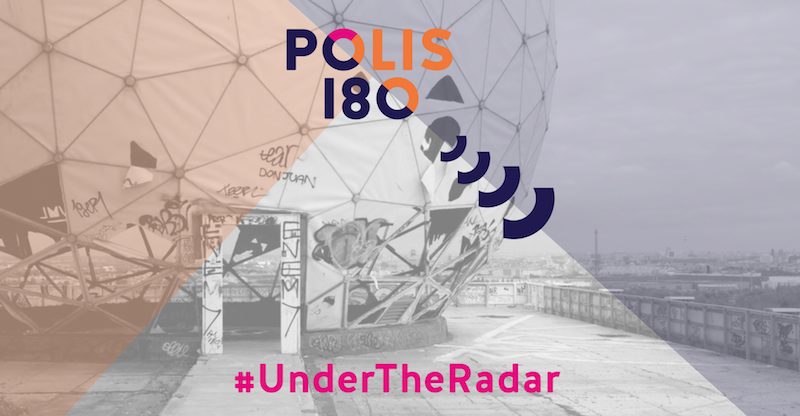In another episode of #UTR, the Polis Blog presents four news stories that undeservedly slipped through the cracks of recent media attention.
A Column by Anne-Kathrin Glück
The debate on the veto in international relations occurs mostly when the veto is being used to block an urgent conflict resolution. In the Security Council, the veto power belongs to the five permanent members China, Russia, France, the UK and the US, a privilege that the Big 5 claim since the end of World War II. During the Cold War, it was often the Soviet Union vetoing Western decisions. After Russia succeeded the Soviet Union’s seat in the United Nations, the boycott of war resolutions went on and caused controversy around the world until this day. Donald Trump has never held back his doubt about the effectiveness of the United Nations all together and promptly used the first US veto in six years. Although the United States is the UN’s largest contributor, Trump’s favoured quid pro quo policy consists in passing on serious diplomatic efforts to the international community, that will hopefully take up the challenge and support the peace process in the names of innocent civilians.
Polis Programme European Union: AU-EU Relations Serve a Larger Purpose
Morocco’s readmission into the African Union has ultimately strengthened the continental bloc. On a global level, a unified AU contributes to strategic decision-making. The last African Union-European Union Summit in Abidjan, for example, has proven effective in responding collectively to Libya’s humanitarian crisis through the AU-EU-UN Taskforce, and supporting the AU Commission in reviving the peace process in South Sudan. On a domestic level, the Union provides the resources to successfully implement the promising Agenda 2063. It also takes decisive leadership in Africa to advocate on behalf of the AU institutions and push for Africa’s industrialisation, for which the Nigerian President Muhammadu Buhari is considered to be a prominent example. On a different note: the EU will chair the Kimberley Process in 2018 that is according to the High Representative Federica Mogherini “part of our work for human rights – to make sure that diamonds produce wealth, not modern slavery.”
Why should this be on our radar? By calling an end to the relationship of donor and recipient, the French President Emmanuel Macron introduced a new approach to African policy and helped to rethink Western influence in Africa.
Polis Programme Migration: The Yemen War Since 2015
According to the latest UNHCR figures, more than 22 million people in Yemen are in need of life-saving humanitarian and critical commercial supplies. More than two million internally displaced persons live in temporary shelters and more than 190,000 Yemenis have fled to the neighbouring countries Oman, Somalia, Saudi Arabia, Djibouti, Ethiopia and Sudan. The latest WHO figures show that over 700,000 people have been diagnosed with cholera. According to UNICEF, more than 1,876 children were killed and 2,987 children were verified injured.
Why should this be on our radar? The recent cycle of successive retaliation led to a blockade of Yemen, which prevents the delivery of humanitarian assistance to the civilian population. Following international outcry, the key port of Hodeidah was reopened to food aid and commercial fuel for a period of 30 days. Nevertheless, it is uncertain how and when the war will end.
Polis Programme Peace & Security: Melting Arctic Remains Key Subject to Global Interest
As the Arctic is undergoing a rapid transformation due to global warming, the region’s strategic importance to the eight northernmost countries Canada, Finland, Denmark, Iceland, Norway, Russia, Sweden and the US increases continuously. Not only contains the Arctic one of the world’s remaining oil and gas resources. The melting ice makes it possible to reduce shipping times from east to west through the Northwest Passage and the Northern Sea Route. The EU announced that it will scale up investment in sustainable development to reduce the impact of climate change on the region and enhance international cooperation. The latest agreement between all Arctic stakeholders was reached to prevent unregulated commercial deep sea fishing, considering the thawing Arctic attracts more commercial fisheries.
Why should this be on our radar? Ten percent of the four million inhabitants of the Arctic are indigenous people, who are seriously threatened by the eroding coast line. To preserve their culture should thus be one of the interest groups‘ priorities.
Polis Programme Digitalisation & Data Security: News-Writing Bots and Geopolitics
Artificial Intelligence will influence the future of journalism at least in two different ways. For one, robots take over the tasks of hard-working reporters who produce quick content on a daily basis. Automated content-generating systems are already delivering results. Key phrases created by editors combined with smart algorithmic tools scan tons of data and produce more content with less labour required. The goal is to reach a wider audience and work more efficiently in the newsrooms. Therein lies opportunity to reinvent the purpose of journalism. Reporters have the capacity now to focus on the analytical aspects of their news stories and create something that lives longer, which will definitely challenge the today’s-news-is-tomorrow’s-fish-and-chip-paper approach in professional writing.
Why should this be on our radar? Foreign policy analysis requires extensive research and documentation. AI might actually help to increase the productivity of journalists and scientists.
In this editor’s column, newsworthy issues in foreign policy that slipped through the cracks of public attention are informally listed in a Top 4 linked to the four Polis180 Programs European Union, Migration, Peace & Security and Digitalisation & Data Security.
Image source: „teufelsberg ii“, von Büsenfeld, http://bit.ly/1RMYPlj, lizensiert unter Creative Commons license 2.0.: https://creativecommons.org/licenses/by/2.0/.
